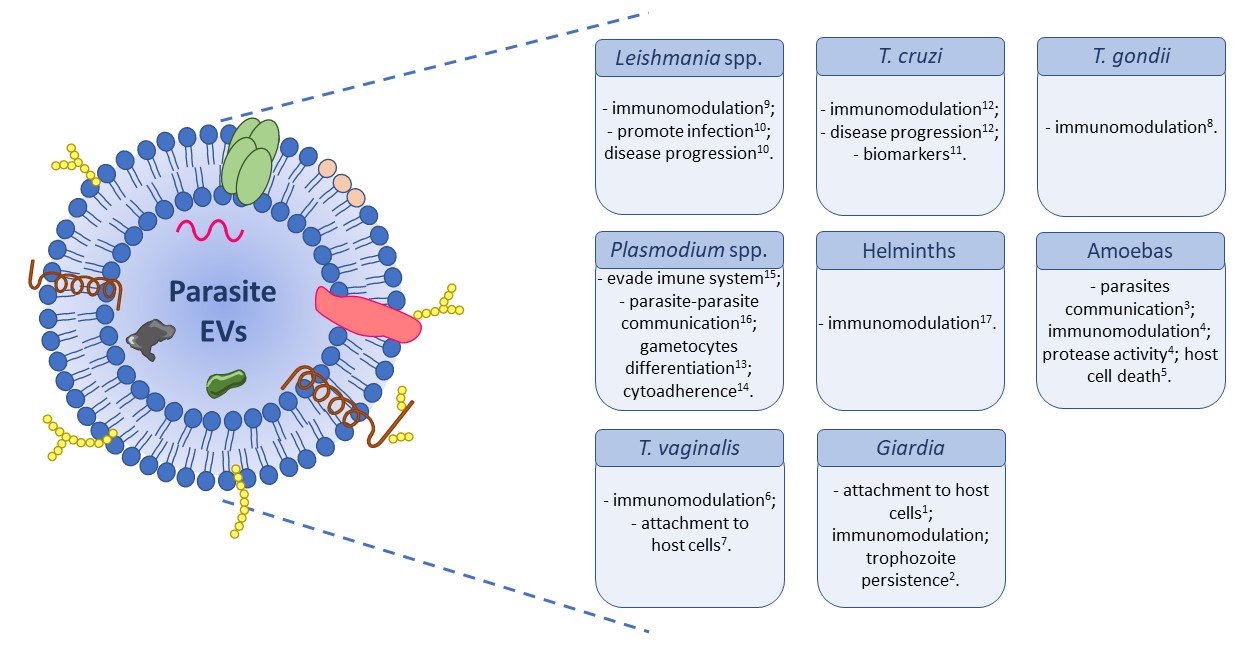New Guidelines for Using Extracellular Vesicles to Study Parasites
IGTP and ISGlobal researchers collaborate on a document on how to use extracellular vesicles to better understand, diagnose and treat parasitic diseases
23.11.2023
A collaborative document outlining new guidelines for the isolation and characterisation of extracellular vesicles in parasitic disease research has been published in the Journal of Extracellular Biology. A research group from the Germans Trias i Pujol Research Institute (IGTP) and the Barcelona Institute for Global Health (ISGlobal) contributed to the study, which could enhance our understanding of host-parasite interactions and advance early diagnosis, treatment, and prevention of parasite-caused diseases.
Parasitic diseases, frequently overlooked in global health priorities, affect over a billion people worldwide, predominantly in tropical regions. Despite their significant impact on public health, these diseases present challenges in diagnosis, treatment and prevention, largely due to the complex life cycles of the parasites and the intricate nature of host-parasite interactions.
Recent research has shown that tiny particles known as extracellular vesicles, released by both hosts and their pathogenic invaders, play a vital role in the interaction and survival of parasites. Involved in processes like infection spread and immune system modulation, these vesicles show promise as markers for hidden infections and predictors of disease progression after treatment, potentially aiding in the management of parasitic diseases.
Existing methods for isolating and examining extracellular vesicles often lack the necessary rigor and standardisation, leading to challenges in verifying their purity and specific characteristics. This lack of precise and reliable techniques makes it difficult to understand and apply extracellular vesicles in medical research effectively.
Guidelines to enhance the quality and reliability of results
To overcome these challenges, the current study introduces a set of rigorous guidelines and standards. These guidelines provide methods for the isolation and molecular characterisation of extracellular vesicles from cell cultures infected by parasites, experimental animals, and patient samples. They aim to enhance the quality and reliability of results obtained in studies related to parasites and tropical diseases. The document also encompasses a discussion of recommended protocols and functional assays carried out in host cells.
This position paper has been led by Carmen Fernandez-Becerra (ISGlobal/IGTP, Spain), Martin Olivier (McGill University, Canada) and Ana Claudia Torrecilhas (UNIFESP, Brazil), in collaboration with several international groups. Fernández-Becerra, first author of the study and co-leader of the Plasmodium vivax and Exosome Research (PvREX) group, states: “The proposed standardised methods would not only facilitate the comparison of results across different research endeavours but also allow for a deeper understanding of the interaction mechanisms between parasites and their hosts, potentially leading to advances in early diagnosis, treatment, and prevention of these diseases”.
She also adds that “standardising procedures would improve the quality and reliability of biomarkers used to detect asymptomatic infections and predict disease prognosis, which could have a positive impact on public health by enabling more effective disease detection and management”.
Referencia
Fernandez-Becerra C, Xander P, Alfandari D, et al. Guidelines for the Purification and Characterization of Extracellular Vesicles of Parasites. Journal of Extracellular Biology. 2023 Oct;10(2):e117. DOI: 10.1002/jex2.117



